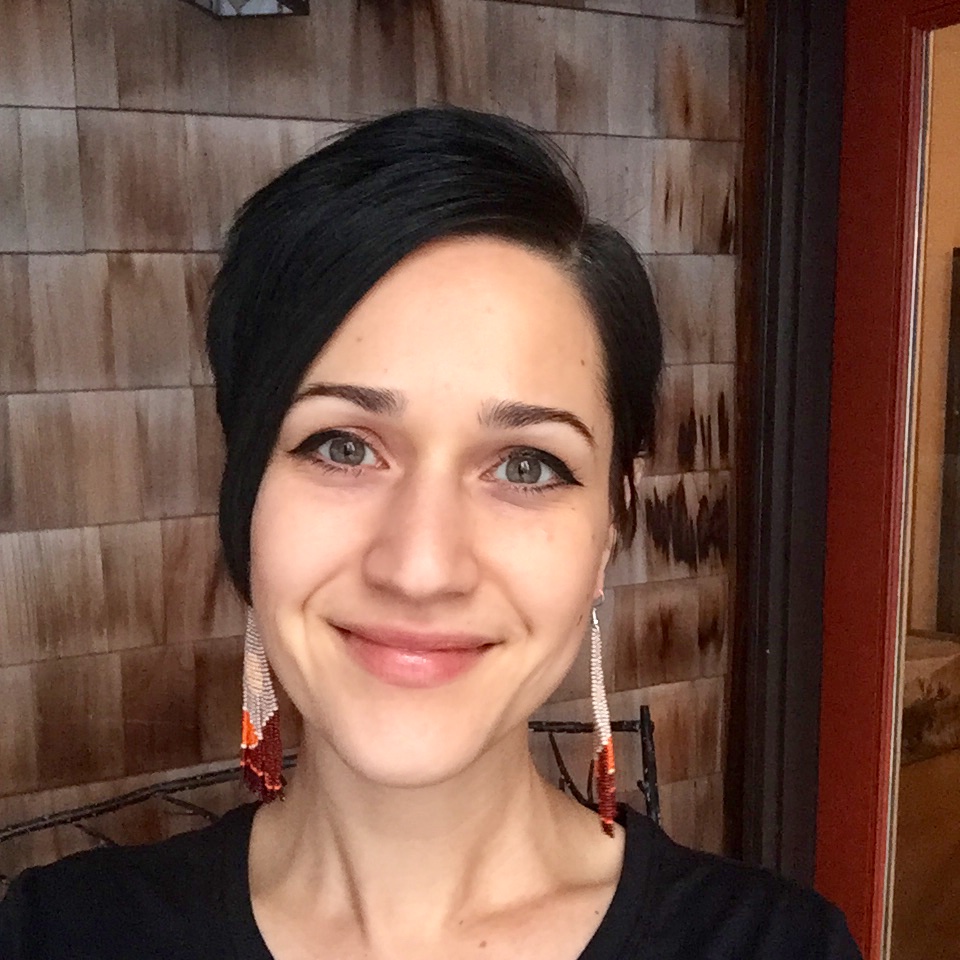Connecting with Invisible Mamas

Before my son, Wesley, was born, I was an invisible mother.
It all began when I discovered I was pregnant for the first time—almost ten years before I got pregnant with Wesley. That day, everything changed.
I know it sounds dramatic, but it felt like the universe shifted. My universe did, anyway. I knew in every cell of my body that I was a mom. From the moment I saw those two pink lines, I cherished my tiny child and dreamed of who he might become.
Those dreams were shattered when I lost my baby to miscarriage. Everything indeed changed, but in all the wrong ways. Yet, there was one thing the miscarriage couldn’t take from me: the fact that I had become a mother.
Though my child was no longer with me, I knew that he was very much alive—I knew he was in Heaven waiting for me. He’s as real to me as anyone, and I think of him often, imagining the day we will finally meet face to face. But because I wasn’t raising my child here on Earth and I had no other children at the time, my motherhood was invisible.
Being Invisible
One of the hardest things about being an invisible mother in the years that followed the loss of my baby was that, though I thought of myself as a mother, others didn’t necessarily see me that way. This discrepancy gave rise to a lot of painful, often awkward, scenarios. Such as being at church on Mother’s Day when the pastor announces, “There are gifts for all mothers in the entryway, please grab one as you leave!” I always wondered, Does that include me? Will someone judge me if I take one, either because they don’t know about my child in Heaven, or they don’t think he counts?
Or being asked, “Do you have kids?” and, every time, being at a loss for words. Do I betray my baby in Heaven by saying no? Or do I make a potentially embarrassing attempt to explain my complicated fertility journey to a complete stranger?
Or being ensconced in a group of women who chatter endlessly about birth, breastfeeding, or the best strollers. Do I stifle my sadness, politely listen, and pretend I don’t feel painfully out of sync with “normal women”? Silently pray for the day I’ll have something to contribute? Excuse myself?
Easing the Pain
Being an invisible mama hurts, and sadly, I’m just one among many who have experienced this pain.
Women who have conceived life yet don’t have children here on Earth can be found all around us:
She’s the nurse taking your vitals at the doctor's office…
She’s the woman in the seat beside you singing hymns on Sunday morning…
She’s the woman throwing clay next to you at your Wednesday night pottery class….
Whether she’s a friend, an acquaintance, or a perfect stranger, here is something I discovered on my own journey that is likely to be true of her as well: How you interact with her around the topic of children can either add to the heartache or help with her healing.
The good news is that meeting these mamas where they’re at and ministering to their needs doesn’t have to be complicated.
Here are a few simple guidelines that can go a long way toward extending comfort and care to our hurting sisters:
Be considerate when asking about kids.
If you read articles on infertility or baby loss, you’ll likely come across this advice: When you meet someone new, don’t ask if they have children.
Though I admit I used to feel relieved when a new acquaintance didn’t ask if I had kids, I don’t think that conversation should be automatically avoided. Having children is a major part of life for many people, and it’s a common way for women to connect. I don’t think we should be afraid to talk about it.
That said, it’s a conversation that should be handled with care. If you decide to ask an acquaintance if they have kids and the answer is negative, be aware that there could be oceans of grief behind her “No.” Don’t make glib comments like, “Enjoy it while you can!” or “Lucky you.”
It’s also best not to ask prying questions, such as, “How come?” or “When do plan to have them?” Though some women may be comfortable answering these questions, many, whether invisible mothers or not, would rather not discuss such a personal topic with someone they don’t know well.
Help her connect by keeping the conversation inclusive.
When you’re in a group of women, keep in mind that someone in the group could be dealing with the issue of infertility or baby loss. As mentioned earlier, as an invisible mom, it can be really painful to be among other women and have the conversation be completely birth/baby/child focused for long stretches of time.
Don’t get me wrong—again, I’m not saying women shouldn’t talk about these things. Even during the long years of infertility I endured before and after my miscarriage, I liked to see women enjoying motherhood, and by listening to other women’s experiences, I learned a lot of useful information I knew I would put to good use once I finally had a baby of my own. But be mindful. If you notice that the conversation around breastfeeding has been going on for over 30 minutes, have the grace to change the topic to something more inclusive that invisible moms can connect with.
Share your baby carefully.
Babies are precious and to be treasured. But for an invisible mother, being around them can be difficult. After losing my baby, holding other women’s babies was excruciating. I remember one mom, probably desperate for a break, abruptly shuffling her newborn into my arms. It’s difficult to describe, but the pain I felt was almost physical, like being stabbed in the chest with a hot poker. It was important to me to show love and kindness to babies, and I made efforts to do that. But I confess, it was nice when a mom didn’t automatically assume I wanted to hold her baby.
Curtail your complaints.
Even before giving birth to Wesely, I understood that pregnancy can be hard physically, mentally, and emotionally. Still, it felt like salt on a wound when a woman would rant to me about her uncomfortable but otherwise healthy pregnancy. It was a struggle not to think, “At least you have a baby! At least your child is alive and healthy!”
I totally get that sometimes we just need to vent, and women definitely should get the support they need during pregnancy. Just be thoughtful about whom you’re getting that support from. Don’t vent to just anyone. If you know a friend has experienced a loss, or you’re unsure of her pregnancy history, it’s probably wise to avoid sharing your pregnancy woes with her.
Send a card.
If you have a friend who you know is an invisible mother, consider sending her a card or text on Mother’s Day or other significant holidays or anniversaries. I can’t speak for everyone, but I know that the cards I received meant the world to me.
Before you write, take into account whether she’s been open about her loss or not. Follow her lead. If she has talked about her loss with you in the past, she will likely appreciate your gesture. On the other hand, if you’re aware she has had a loss but she’s never spoken directly to you about it, she may or may not want a card. Say a prayer, and use your best judgment. If you decide to write, keep it simple. Avoid annoying (perhaps even rage-inducing) platitudes about God needing another baby in heaven (it’s just not true, and it only adds to the pain). A short and sweet, “Thinking of you…” will do.
Look Out, Lift Up, Love On
Ronald Reagan said, “When a child loses his parent, they are called an orphan. When a spouse loses her or his partner, they are called a widow or widower. When parents lose their child, there isn't a word to describe them.”
Being unrecognized as a parent after losing a child adds to the pain of the loss. As much as we want to, we can’t make the pain of an invisible mother disappear, but we can lessen it by being aware of her needs, lifting her in prayer, and loving on her with God’s love.
And if you yourself are an invisible mama, I want to affirm that even though you may not have cheerios in your purse, sippy cups on your nightstand, or a car seat in the back seat of your car, you are a mother nonetheless. God is tenderly attuned to your heart, He sees your sorrow, and He has good things in store for you. Heartache is not the end of your story! I pray that you find yourself surrounded by friends, family, and mentors who can comfort you and help carry you through this difficult season and that you find hope and healing in Jesus’ embrace.
Related Resource: When Mother's Day Is Painful
This episode of Faith Over Fear is for everyone who feels the ache of longing for a loving and nurturing mother but, for your mental health and healing, have had to create firm boundaries with your mother, potentially even eliminating contact with her entirely. No one makes this decision lightly or without pain.
Photo Credit: ©GettyImages/PeopleImages

Originally published May 08, 2024.







